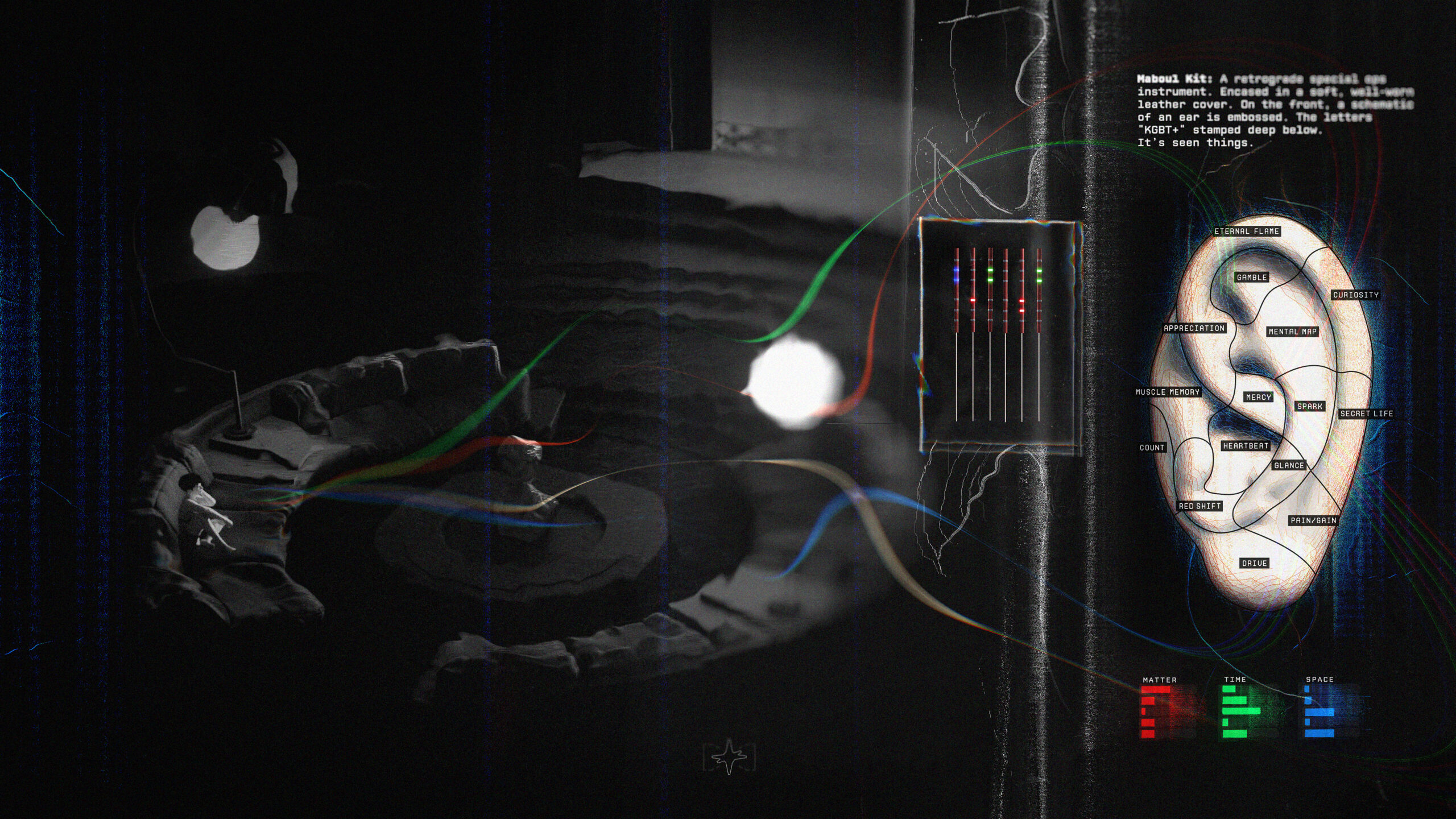
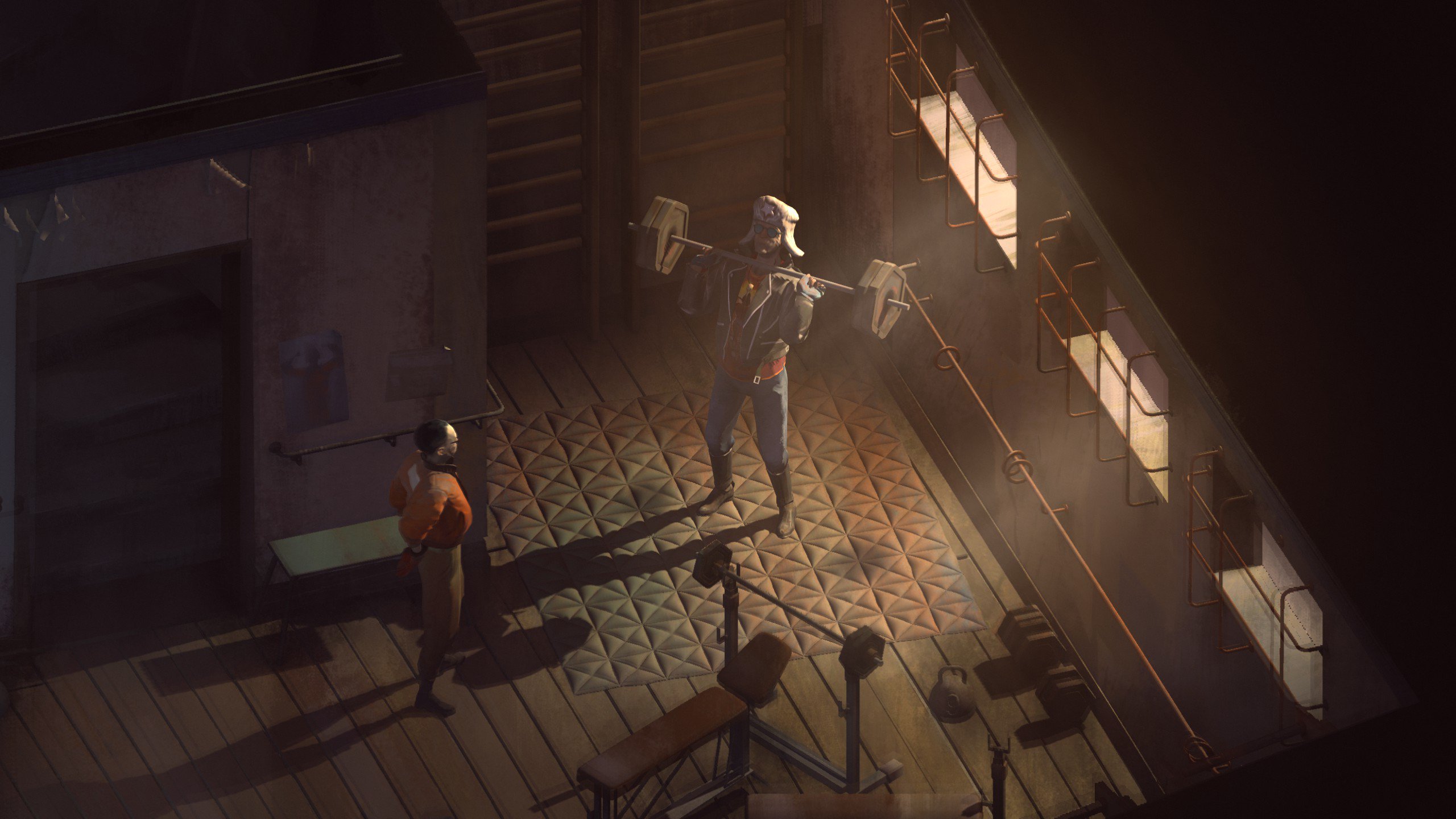
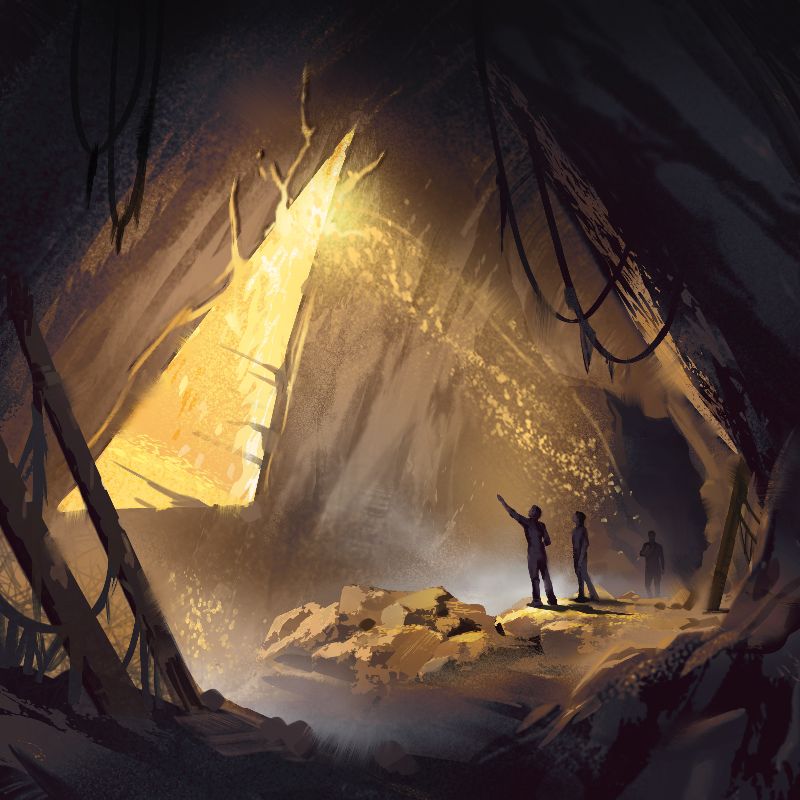
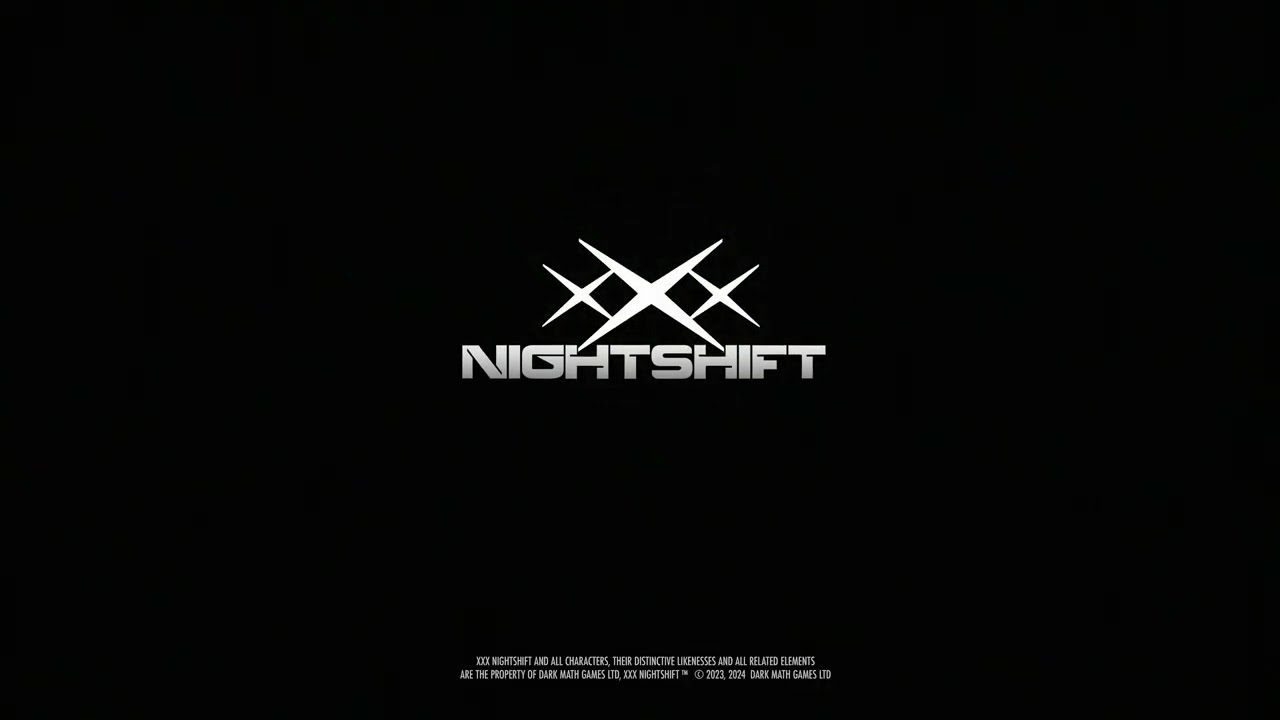
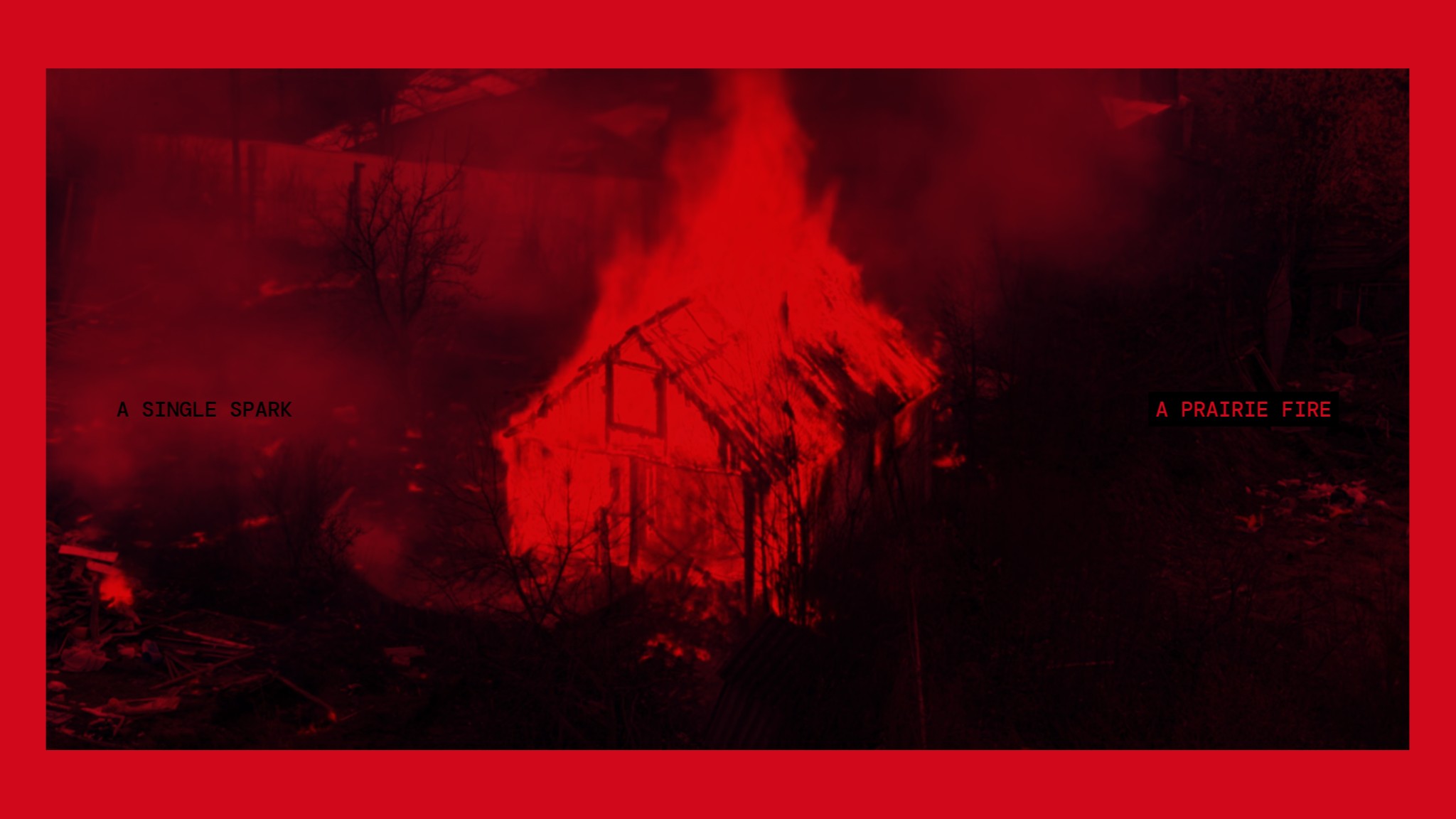
Ahead of Disco Elysium’s fifth anniversary earlier this month, three new studios announced their plans to make games explicitly building on its legacy, joining the two that already had something underway—and plenty of former devs who have filtered out elsewhere in the industry. What does not appear to be in the cards is a direct sequel using Disco’s characters or the established world of Elysium.
Studio ZA/UM canceled development on a full sequel to Disco shortly after the departure of three key developers. Those devs, including the setting’s creator, alleged financial malfeasance on the part of the company’s executives—including two of Disco’s producers—while the other side maintains that these developers were fired with cause. Earlier this year, ZA/UM canceled development on a “standalone expansion” to Disco, laying off its developers in the process.
That’s the topline summary of how we got here. Below I’ve listed the studios currently vying for your attention, the original Disco devs working at them, and my assessment of their chances.
ZA/UM
- Game: Project C4 (main), Project M8 (side)
- O.G. Disco devs: Justin Keenan (writer), Kaspar Tamsalu (artist), Tõnis Haavel (producer), Eduardo Rubio (animation), Anton Vill (artist)
- Prognosis: I hope they make a new game before the studio lays everyone off.
- Disco Score: ⭐⭐⭐◼️◼️
I don’t think I’m speaking out of turn when I say that ZA/UM is an “embattled” studio. Fan sentiment has largely aligned with the former developers who departed in 2021, with most goodwill (or even just benefit of the doubt) accumulated after the release of People Make Games’ Disco documentary wiped out with the laying off of a quarter of the studio—including a key writer on the original game.
Earlier this year I conducted an investigation into ZA/UM’s canceled projects, which included a Disco Elysium sequel, sci-fi RPG, and, furthest along and at the center of 2024’s layoffs, a “standalone expansion” set in the world of Elysium. A common throughline in my interviews were complaints about studio management, particularly Disco Elysium producer Tõnis Haavel—Haavel is also at the center of the departed developers’ financial accusations, and was previously convicted of investor fraud in Estonia. According to developers at ZA/UM, the canceled expansion was hamstrung by shifting goal posts, a confused chain of command, an imposed system of overly bureaucratic communication, and the absence of an industry-standard pre-production period.
Despite all of that, ZA/UM still consists of a large team of talented developers, including a number of veterans from Disco Elysium. Writer Justin Keenan was characterized to me by a fellow developer as being a bit of an unsung hero on Disco’s writing team, having a big hand in Kim Kitsuragi’s character in particular in the editing process. Keenan was also behind Final Cut additions like the Communist vision quest. Artists Anton Vill and Kaspar Tamsalu were contributors to Disco’s unique look, with Vill in particular having done the art for the Thought Cabinet.
Following post-Disco hiring and subsequent layoffs, ZA/UM should still consist of about 70 employees—more than twice the size of the team that made Disco. The studio’s primary project in development is an unannounced RPG in a new setting, independent from the world of Elysium. If ZA/UM’s developers are allowed to make the game they are capable of without undue interference or more mass layoffs, I think it could be something special.
Red Info
- Game: “Corinthians (?)”
- O.G. Disco devs: Robert Kurvitz (writer, setting creator), Aleksander Rostov (artist), Helen Hindpere (writer)
- Prognosis: Still need to see their cards.
- Disco Score: ⭐⭐⭐⭐◼️
The developers who left ZA/UM alleging financial malfeasance in 2021—Robert Kurvitz, Aleksander Rostov, and Helen Hindpere—have set up this new studio, and they were some of the key creative talent on Disco Elysium. Kurvitz was the creator of the setting as a whole, hosting tabletop sessions and writing a novel set in Elysium before serving as the writing and overall project lead on Disco. Rostov, meanwhile, was lead artist on Disco Elysium, and before that he did illustrations for Kurvitz’s novel, laying the groundwork for Elysium’s visual language. Hindpere was a principle writer on Disco whose focus areas included the Doomed Commercial Area, Church ravers, and Working Class Woman investigation.
The big questions for me are what their plans are, and what sort of studio has/will coalesce around them. Red Info has been engaged in a legal battle with ZA/UM for ownership of the Elysium IP, the result of which remains unclear. PMG’s documentary revealed that the studio had submitted a copyright claim for something called “Corinthians,” with smart money being that this is a “backup” new IP, should ZA/UM retain ownership of Disco Elysium.
So we really just don’t know what Red Info is up to, how big it is (or will be), or what kind of timetable we can expect for further announcements, but the studio has received outside investment and was formed around a core group of exciting talent.
Longdue
- Game: Unnamed “Psychogeographic RPG”
- O.G. Disco devs: Yet to be named.
- Prognosis: What’s going on with this one?
- Disco Score: ⭐◼️◼️◼️◼️
Longdue and Dark Math are where things start to get strange—as if the saga up to this point wasn’t strange enough as it is. Longdue consists of developers with previous experience on triple-A games, as well as former Disco Elysium developers—but the studio will not say who specifically at this time.
It’s a move I’m sympathetic to given the extreme tensions around Disco Elysium—some developers have reported receiving death threats—and there’s certainly an argument to be made that the gaming public is overly concerned with specific developers and their personal lives. Even so, this doesn’t entirely sit right with me. The claim Longdue makes on Disco’s legacy as an RPG is undermined when the other studios in question have named talent who worked on specific parts of the game. Otherwise, Longdue is reminiscent of the large number of new, smaller studios with former triple-A talent that kept popping up in the more generous investment environment of the pandemic years.
There’s also some weirdness around the studio’s founding. Longdue’s chairman and investor, Riaz Moola, was quoted in in the studio’s initial press release. Moola is a tech executive and Forbes 30 under 30er, and I was previously contacted by him from a Dark Math Games email address—Dark Math being the next studio on this list. Moola’s signature listed him as a “Co-Founder” of the competing successor studio, but Dark Math is not listed on Moola’s LinkedIn, nor is his name among the founders or stakeholders on the UK’s Companies House entry for Dark Math.
According to Longdue’s own Companies House page, the studio was incorporated on September 25, a scant two weeks before its official announcement. Rather than having a hand in two different Disco successor studios simultaneously, I think it’s far more likely that Moola parted ways with Dark Math to spin up his own effort—under what circumstances, though, who can say. Regardless, that September incorporation means that among these studios Longdue is possibly the furthest away from shipping a game, while also being the one we know the least about.
Dark Math Games
- Game: XXX Nightshift
- O.G. Disco devs: Timo Albert (motion graphics), Kaur Kender (producer)
- Prognosis: I have concerns.
- Disco Score: ⭐⭐◼️◼️◼️
Dark Math is the only one of these studios with an announced, titled game, XXX Nightshift, which has a teaser trailer and even a Steam page. That’s led to some understandable excitement, but the content of XXX Nightshift’s promo material, as well as who’s making it, have me less enthused.
Dark Math’s founders, according to Companies House, include Kaur Kender, a producer on Disco Elysium. Though listed as having resigned from company leadership, Kender’s LinkedIn has him as executive producer on XXX Nightshift. Kender was an early partner in creating Disco Elysium, and his connections in Estonia seem to have been crucial in getting the game funded. Disco writer Argo Tuulik has also said that Kender’s father, a Soviet-era detective, was a partial inspiration for protagonist Harry DuBois.
But Kender is also a strange, controversial figure. Kender was acquitted of child pornography charges in Estonia in 2017 over his short story, Untitled 12, which relayed a narrative about a pedophilic murderer. The novel was defended and the charges dropped on the grounds that it was a transgressive work of literature with potential artistic merit, something like 120 Days of Sodom or Lolita, both of which were cited by the defense.
Kender was also accused by Kurvitz and Rostov of having colluded with Tõnis Haavel and ZA/UM president Ilmar Kompus in using company funds to acquire a majority stake in ZA/UM. Whatever the validity of that accusation, Kender had his own falling out with ZA/UM leadership, suing the company on similar grounds to Kurvitz and Rostov before ultimately withdrawing the suit. Before leaving ZA/UM, Kender was project lead on the studio’s canceled sci-fi RPG.
The only original Disco developer named in Dark Math’s first press release was Timo Albert, who worked on motion graphics for Disco Elysium—in this context, I always took this to mean he contributed to the game’s distinctive menus and UI, which were styled like an old projector. Albert is art lead on XXX Nightshift, and I think his prior experience shows through in the first trailer’s evocation of Disco’s UI.
But Albert is a similarly unique, potentially divisive figure like Kender. Albert’s Instagram features numerous videos of him participating in what appear to be live-fire exercises in military-style dress, and he has endorsed right wing causes and politicians through the platform. A recent Instagram Story from Albert featured a close-up of an American flag (Albert is Estonian) partially covering a Trump campaign sign, the latter signed by the former president, and the former by members of the band Five Finger Death Punch, who appear to employ Albert as private security while on tour.
The XXX Nightshift material itself leaves me torn: I’m not fond of the name, which just keeps making me think of slain SoundCloud rapper XXXTentacion. Perhaps I’m being uncharitable, but I felt pandered to by the trailer, whose deliberate mirroring of Disco Elysium’s own iconic opening struck me as a play for nostalgia. At the same time, I find myself intrigued by XXX Nightshift’s setting: Antarctica in the year 2086. A sci-fi detective story amid a backdrop of extreme climate change is an undeniably cool premise for a videogame.
Summer Eternal
- Game: Unnamed RPG
- O.G. Disco devs: Argo Tuulik (writer), Lenval Brown (voice actor)
- Prognosis: The delicate flame of hope.
- Disco Score: ⭐⭐⭐⭐◼️
Summer Eternal was the last of these studios to be announced, and it combines some exciting talent with a refreshing and daring political edge. Disco writer and lead writer on its canceled expansion, Argo Tuulik, is part of the team, as is Final Cut narrator Lenval Brown. Disco Elysium writer Olga Moskvina is also participating in a consulting role. Summer Eternal further boasts former ZA/UM developers who came on after Disco Elysium and the Final Cut, including writer Dora Klindžić, artist Anastasia Ivanova, and designer Michael Oswell.
What makes Summer Eternal exciting and fresh is also what makes it risky. The studio kicked things off with a politically charged manifesto, one that rails against “big tech’s encroachment” into art, the “corporatization and alienation of game creators from their work,” and my personal favorite, the “simulacra, cold comfort, real-doll pocket-pussy, cyberspace freezer of an abandoned im-chat” represented by generative AI. Summer Eternal is a cooperative rather than a traditional company, and it has incisively criticized funding models that empower investors and executives. In an interview with VG247, studio members offered a dim view of the current state of the industry, including criticism of Valve’s “digital fiefdom” in Steam.
Which gets to the risk factor: funding. Summer Eternal’s independence and bracing hostility to the usual sources of cash in the industry limit its options. The studio indicated that it will pursue crowdfunding, but that makes me a little nervous—the golden age of videogame Kickstarters ended a long time ago, and I’ve observed a lot of exciting projects fail (or almost fail) to meet their funding goals.
But that’s the risk of doing something bold and iconoclastic, and it comes at a time of crisis for the industry—venture capital funding may have been a nonstarter even if Summer Eternal had wanted to play nice with the suits. Summer Eternal has an exciting vision for the industry and some serious RPG chops, but also material challenges to overcome—not unlike Studio ZA/UM when making Disco Elysium.


